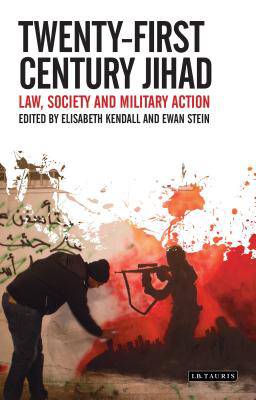
- Afhalen na 1 uur in een winkel met voorraad
- Gratis thuislevering in België vanaf € 30
- Ruim aanbod met 7 miljoen producten
- Afhalen na 1 uur in een winkel met voorraad
- Gratis thuislevering in België vanaf € 30
- Ruim aanbod met 7 miljoen producten
Zoeken
€ 271,45
+ 542 punten
Uitvoering
Omschrijving
The term 'jihad' has come to be used as a byword for fanaticism and Islam's allegedly implacable hostility towards the West. But, like other religious and political concepts, jihad has multiple resonances and associations, its meaning shifting over time and from place to place. Jihad has referred to movements of internal reform, spiritual struggle and self-defence as much as to 'holy war'. And among Muslim intellectuals, the meaning and significance of jihad remain subject to debate and controversy. With this in mind, Twenty-First Century Jihad examines the ways in which the concept of jihad has changed, from its roots in the Quran to its usage in current debate. This book explores familiar modern political angles, and touches on far less commonly analysed instances of jihad, incorporating issues of law, society, literature and military action. As this key concept is ever-more important for international politics and security studies, Twenty-First Century Jihad contains vital analysis for those researching the role of religion in the modern world.
Specificaties
Betrokkenen
- Auteur(s):
- Uitgeverij:
Inhoud
- Aantal bladzijden:
- 376
- Taal:
- Engels
- Reeks:
Eigenschappen
- Productcode (EAN):
- 9781780769165
- Verschijningsdatum:
- 30/08/2015
- Uitvoering:
- Hardcover
- Formaat:
- Genaaid
- Afmetingen:
- 142 mm x 218 mm
- Gewicht:
- 598 g

Alleen bij Standaard Boekhandel
+ 542 punten op je klantenkaart van Standaard Boekhandel
Beoordelingen
We publiceren alleen reviews die voldoen aan de voorwaarden voor reviews. Bekijk onze voorwaarden voor reviews.











